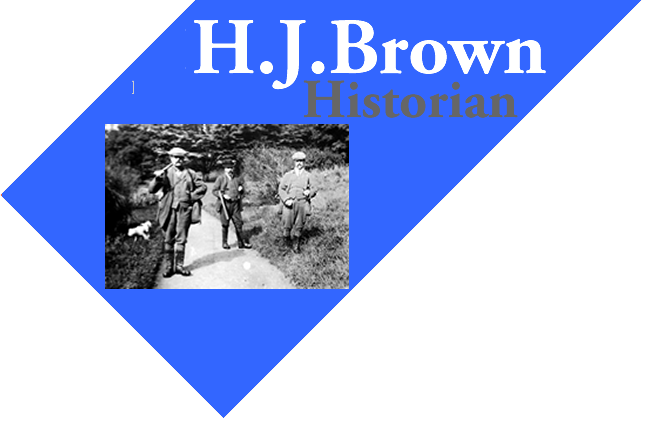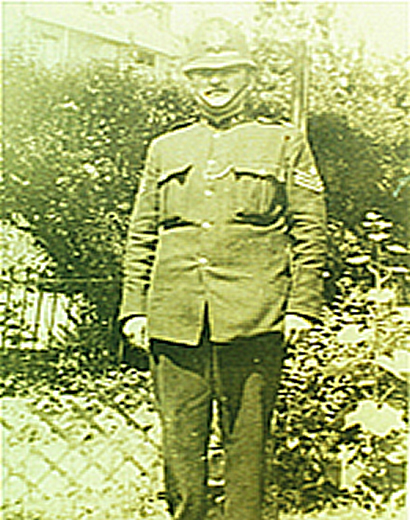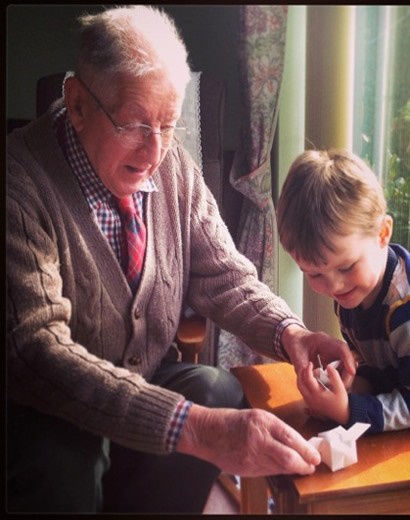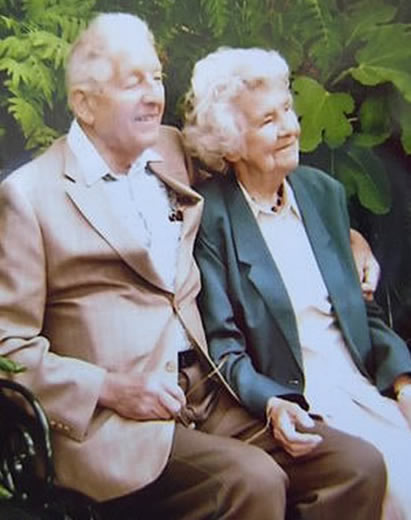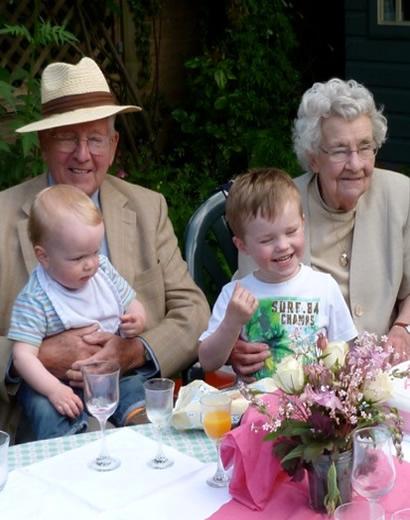The Police
It was natural for me to have a great interest in the police, as my Father joined the Metropolitan Police in 1913 and retired in 1938 with the rank of Station Sergeant, a rank that is no longer used. He started at Southwark, always known as The Borough by Londoners because it was the first borough of the City of London, built on the south side of London Bridge. He lived in the Section House, the name given to unmarried policeman’s living accommodation at stations. He used to say that in those days, if a message came to the station about a major street disturbance, all men available , including off duty men in the Section House, had to proceed to the point of the trouble. If a man was not in uniform it was sufficient for him to put on his helmet, pick up his truncheon and join the others in rushing out of the station. It must have been the sort of spectacle that prompted the Keystone Cops that featured in silent movies. It was still very much a beat service and each beat polceman was within whistle distance from a neighbouring beat. I always remember how hot my Father found it in the summer and the red ring round his forehead where his helmet went. In winter police had heavy long overcoats and capes were also provided for wet weather. When not in use they were rolled and could be a useful weapon for giving anybody a handy blow.
By the twenties and thirties the police had greater mobility but the main way for a policeman to call for assistance was still by using his whistle and hope that a nearby man would hear it and come running and follow the sound of the whistle. In the early thirties special blue police boxes appeared in the capital and these connected callers to the station, and a flashing blue light on top allowed the station to attract the attention of passing policeman .The introduction of public telephone boxes, particularly the new automatic service and the 999 call made communication so much better. Before traffic lights there was a policeman on point duty at most busy crossings. In Southwark the Elephant and Castle was the busiest in London with several roads, as it is today, and there used to be a man on each road all under control of a sergeant who directed operations so that each road got its turn. It was on this crossing that my Dad stopped a pair of runaway cart horses by going for their heads and pulling them down.
The police at that time were not popular with the working public but they were respected . Met police had to be about five foot ten but City police had to be six foot. It was always a policeman that had to administer the birch when a magistrate ordered it and Dad used to say it was feared by louts and bullies and in his opinion was a definite deterrent. Drunkenness at turning out time caused a lot of violent behaviour. There was one old lady often picked up dead drunk on a Saturday night and knew my dad quite well as he made the charges. She used to ask him what hymn she should sing and he would tell her one that she would sing in the cells until she went into a drunken sleep. In the morning she was sober and they often let her go without charge The police had a lot of physical contact, often resulting in injuries to all involved but when up before a magistrate the next day they accepted the treatment they had received. My Dad always advised to keep clear if possible of a fighting married couple because if you intervened they would both turn on you.
Police duties were in shifts of 6am to 2pm, 2pm to 10pm, 10pm to 6am. Which is what I think they are today. Each duty started with a parade and inspection before they all left the station for their various beats. Before the Great War pubs kept open all hours and it was usual for beat policemen to check up on each pub as they walked by. Publicans liked them to look in and when the policeman called in the landlord often pulled them a pint. Having polished it off the policeman would check that the landlord was happy and if there was a customer who was drunk or giving trouble he would be pointed out and duly removed before the policeman went on his way.
In Southwark there was a big brewery and it was tradition that all visiting tradesmen or policemen calling in got a free pint. There was one story when on a cold winter night the beat policeman called in to warm up and get a visitors pint, but when he went to leave it had snowed and outside the door was virgin snow. He knew the sergeant would be walking by checking and would see his footsteps leaving the brewery and give the game away so he thought of a cunning plan. The brewery was in a side road which ran between two busy roads with lots of footsteps so he stepped out and walked backward to one of the main roads and the walked forwards in his own footsteps past the brewery and on to the other main road, and then off on his beat. In this way the sergeant would only see footsteps going by the brewery !
All stations had a canteen, at Dads station it was run by a retired copper and I was often taken in and given a glass of lemonade and an arrowroot biscuit while Dad had something stronger. I can remember the old bartender amusing me by wrapping silver paper round a Swan Vesta match , balancing it on a match box and then holding a lighted match under it. After a while it would explode and the match would fly off much to everyone’s amusement. At Dads station they often had to help with the crowds at the Arsenal football stadium in the days when fans used to stand on the terraces. He used to say that big crowds used to sway and you knew it was all right but if they stopped swaying and packed in still you knew you could have trouble. Very often children or people taken ill were passed over the heads of the crowd down to the Safety of the pitch.
Looking back I was always so proud of my Dad who looked every inch a policeman of that period , and I didnt mind the banter I sometimes received because I was a Policeman’s son. He never tried to persuade me to join the police and I would not have been a good modern day copper.
At school we we all wore our best clothes, and children in youth organisations wore their uniforms for the parades we had in the playground. Nobody thought it was wrong and everybody had a good time. We never realised that it was all going to change with the 39-45 War and with the break up of the Empire after it was over.
In 1935 when I was eleven there was a great National celebration for the Silver Jubilee of George 5th Everywhere people decorated buildings and shops with flags and bunting , London was a sight to see with the Mall and the West End fully decorated. At that time I lived in a three storey house in Hornsey Rd and my Father sublet the top floor to the Mackney family . Mr Mackney ran a steeplejack business and provided large decorations for businesses and he asked my Dad if he could put up some flags in the front of our house and my easy going old Dad agreed. Our front garden was about eighteen foot long with large metal railings before the road so there was quite a lot of space . I suppose Mr Mackney thought it a good idea to show what he could provide for his prospective customers and he strung up big wax cloth bunting from the top of the house to the railings with large flags , all very impressive. People walking along Hornsey Rd past the usual small decorations would stop and stare when they came to our house, it really stood out.
One night Dad took Mum and I up to town to see the lights and we got caught up in a very big crowd. It was an eye opener to me and the crush was very alarming but Dad was used to it and took care of us, but I will always remember it. .
By the twenties and thirties the police had greater mobility but the main way for a policeman to call for assistance was still by using his whistle and hope that a nearby man would hear it and come running and follow the sound of the whistle. In the early thirties special blue police boxes appeared in the capital and these connected callers to the station, and a flashing blue light on top allowed the station to attract the attention of passing policeman .The introduction of public telephone boxes, particularly the new automatic service and the 999 call made communication so much better. Before traffic lights there was a policeman on point duty at most busy crossings. In Southwark the Elephant and Castle was the busiest in London with several roads, as it is today, and there used to be a man on each road all under control of a sergeant who directed operations so that each road got its turn. It was on this crossing that my Dad stopped a pair of runaway cart horses by going for their heads and pulling them down.
The police at that time were not popular with the working public but they were respected . Met police had to be about five foot ten but City police had to be six foot. It was always a policeman that had to administer the birch when a magistrate ordered it and Dad used to say it was feared by louts and bullies and in his opinion was a definite deterrent. Drunkenness at turning out time caused a lot of violent behaviour. There was one old lady often picked up dead drunk on a Saturday night and knew my dad quite well as he made the charges. She used to ask him what hymn she should sing and he would tell her one that she would sing in the cells until she went into a drunken sleep. In the morning she was sober and they often let her go without charge The police had a lot of physical contact, often resulting in injuries to all involved but when up before a magistrate the next day they accepted the treatment they had received. My Dad always advised to keep clear if possible of a fighting married couple because if you intervened they would both turn on you.
Police duties were in shifts of 6am to 2pm, 2pm to 10pm, 10pm to 6am. Which is what I think they are today. Each duty started with a parade and inspection before they all left the station for their various beats. Before the Great War pubs kept open all hours and it was usual for beat policemen to check up on each pub as they walked by. Publicans liked them to look in and when the policeman called in the landlord often pulled them a pint. Having polished it off the policeman would check that the landlord was happy and if there was a customer who was drunk or giving trouble he would be pointed out and duly removed before the policeman went on his way.
In Southwark there was a big brewery and it was tradition that all visiting tradesmen or policemen calling in got a free pint. There was one story when on a cold winter night the beat policeman called in to warm up and get a visitors pint, but when he went to leave it had snowed and outside the door was virgin snow. He knew the sergeant would be walking by checking and would see his footsteps leaving the brewery and give the game away so he thought of a cunning plan. The brewery was in a side road which ran between two busy roads with lots of footsteps so he stepped out and walked backward to one of the main roads and the walked forwards in his own footsteps past the brewery and on to the other main road, and then off on his beat. In this way the sergeant would only see footsteps going by the brewery !
All stations had a canteen, at Dads station it was run by a retired copper and I was often taken in and given a glass of lemonade and an arrowroot biscuit while Dad had something stronger. I can remember the old bartender amusing me by wrapping silver paper round a Swan Vesta match , balancing it on a match box and then holding a lighted match under it. After a while it would explode and the match would fly off much to everyone’s amusement. At Dads station they often had to help with the crowds at the Arsenal football stadium in the days when fans used to stand on the terraces. He used to say that big crowds used to sway and you knew it was all right but if they stopped swaying and packed in still you knew you could have trouble. Very often children or people taken ill were passed over the heads of the crowd down to the Safety of the pitch.
Looking back I was always so proud of my Dad who looked every inch a policeman of that period , and I didnt mind the banter I sometimes received because I was a Policeman’s son. He never tried to persuade me to join the police and I would not have been a good modern day copper.
Empire Day and the 1935 Silver Jubilee
When I went to school the British Empire was still intact and we were brought up with what was probably an arrogant pride in all things British. News reels often started with a view of the Grand Fleet steaming in line ahead and nobody doubted that the Royal Navy was invincible. British ships covered the high seas, the British army was the best and the World map had red all over it where the Empire was coloured red. All this pride came to a head on Empire Day which was celebrated each year.At school we we all wore our best clothes, and children in youth organisations wore their uniforms for the parades we had in the playground. Nobody thought it was wrong and everybody had a good time. We never realised that it was all going to change with the 39-45 War and with the break up of the Empire after it was over.
In 1935 when I was eleven there was a great National celebration for the Silver Jubilee of George 5th Everywhere people decorated buildings and shops with flags and bunting , London was a sight to see with the Mall and the West End fully decorated. At that time I lived in a three storey house in Hornsey Rd and my Father sublet the top floor to the Mackney family . Mr Mackney ran a steeplejack business and provided large decorations for businesses and he asked my Dad if he could put up some flags in the front of our house and my easy going old Dad agreed. Our front garden was about eighteen foot long with large metal railings before the road so there was quite a lot of space . I suppose Mr Mackney thought it a good idea to show what he could provide for his prospective customers and he strung up big wax cloth bunting from the top of the house to the railings with large flags , all very impressive. People walking along Hornsey Rd past the usual small decorations would stop and stare when they came to our house, it really stood out.
One night Dad took Mum and I up to town to see the lights and we got caught up in a very big crowd. It was an eye opener to me and the crush was very alarming but Dad was used to it and took care of us, but I will always remember it. .
